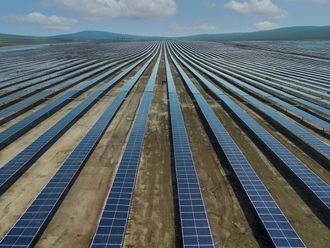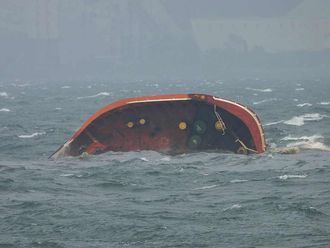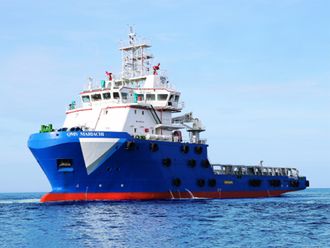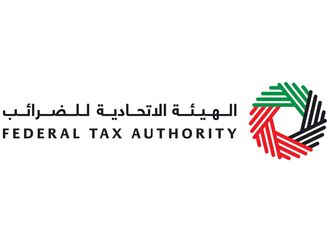Shell Middle East, through its Shell Kazakhstan Development arm, yesterday announced that with its partners it had taken a final investment decision which could see about $29 billion pumped into the development of the giant Kashagan oil field in Kazakhstan.
The move ends months of delays, which have held up the development of what is estimated to be the world's largest untapped deposit.
Shell is a partner in the project with ENI of Italy, Total of France, ExxonMobil Corp, ConocoPhillips and Inpex Corp of Japan.
The field is estimated to hold more oil than Algeria. "Walter van de Vijver, chief executive of Shell Exploration and Production, yesterday said: "Kashagan is a huge project that will be delivering value to shareholders for decades to come.
"It is also an important part of our strategic vision for the region. We see the Caspian and the broader Commonwealth of Independent States as a future heartland for Shell.
"We are making good progress building that heartland. Reaching a final investment decision on Kash-agan is the third major step we have taken in the past year, following similar decisions for the Sakhalin and Salym projects in Russia."
Ron van den Berg, chief executive of Shell Exploration and Production in the Middle East, Russia and Commonwealth of Independent States, added: "Today's green light for Kashagan is testament to our confidence in the business climate in Kazakhstan.
"We welcome progress in improving the legal and regulatory system, and we are also pleased that the government has successfully maintained the stability of the Kashagan production sharing agreement."
The Kashagan field was discovered in 2000 and is estimated to have 38 billion barrels of oil in place, making it one of the largest discoveries in 30 years. Shell holds 16.67 per cent of the project, a stake which will rise to 20.37 per cent upon completion of the previously announced purchase of part of British Gas' shareholding.
First oil from Kashagan is currently targeted for 2008. Initial production is expected to be 75,000 barrels of oil per day, rising to 450,000 barrels a day during the first phase of development.
Subsequent phases are expected to result in full field production of an estimated 1.2 million barrels per day.
To enhance oil recovery and reduce sulphur handling, the consortium plans to inject produced gas back into the reservoir. Depending on the success of gas re-injection, ultimate recovery from Kashagan is estimated to be up to 13 billion barrels of oil.
Shell confirmed the total capital investment for full field development is expected to be about $29 billion.
Kashagan reserves were among those Shell recategorised in its controversial decision last month. The company said the Kashagan volume is expected to be taken into its books in the current year.
Oil majors to invest $29b in Kazakhstan
Shell Middle East, through its Shell Kazakhstan Development arm, yesterday announced that with its partners it had taken a final investment decision which could see about $29 billion pumped into the development of the giant Kashagan oil field in Kazakhstan.












